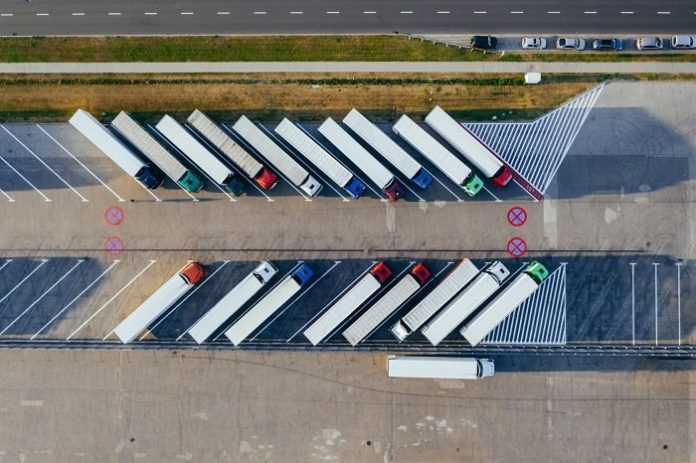When companies trade internationally they often end up importing and exporting goods. In order for these items to reach their destinations, it’s a legal requirement that they first get through Customs. The Customs clearance process can be confusing for anyone who has never dealt with it before. This is especially true considering each country has a different set of trade rules and regulations that need to be complied with.
If this subject is new to you or something you need to more fully understand, you should read this article. It will walk you through everything that you need to know about how Customs clearance works.
The Basics Of Customs Clearance
The Customs officials will examine the goods to make sure they meet all the necessary requirements for import or export, and then release them into the appropriate channels. This process will usually take some time, so factor this in before arranging delivery. The Customs officials may ask for specific documentation relating to your goods. This could include invoices, packing lists, or other information about where the goods came from and what they’re used for. You may also need to provide and fully complete a Customs Declaration form, which is a three-part document.
As for most subjects, there’s plenty of helpful information available on specialist internet sites. If you need Customs clearance for your freight at LAX (LA International Airport) it’s possible to access guides and request online quotes. You can learn more about the Customs paperwork, import duties and tax assessments, and also read industry-related articles.
Bonded Carriers
Bonded carriers are licensed transporters who have been approved by Customs to move goods in and out of the country. They must comply with all Customs regulations, including safety and security requirements. They must also maintain a connection with Customs in case any fines or penalties are assessed. Almost any type of goods can be transported by a bonded carrier, as long as they are legal to import/export.
A company will work with their chosen bonded carrier to arrange for the goods to be picked up and transported to the appropriate Customs port. The bonded carrier will work with Customs to ensure that all necessary paperwork is filed and that the goods are cleared through customs. Once they have been released by them, the bonded carrier will deliver them to their destination. Bonded carriers can also provide storage services for imported or exported goods.
Brokers
If you’re importing goods into another country, brokers are the people to see. They will act on your behalf when it comes to clearing Customs, being an intermediary between yourself and the government. They take care of things like filling out all the documents needed for import, ensuring that everything is legal and then handing over the package, ready for delivery from Customs.
If there was a problem with any documentation or payment, the brokers would be responsible (instead of you) for making payment immediately upon arrival in port. Many brokers offer online services as well, but they vary depending on what company you choose. You should discover beforehand who has an office near where your shipment will arrive.
Import Declaration Forms
These forms are used by Customs officials to determine what duties and taxes will be applied to your shipment, as well as to ensure that all applicable regulations are followed. There are several different forms, but the two most common are the Customs Declaration Form (CDF) and the Commercial Invoice. The CDF is generally used for shipments valued at less than $2500, while the Commercial Invoice is typically required for shipments with a value of $2500 or more.
Both forms require detailed information about your shipment, including the type of goods being imported, their value, and any applicable import restrictions. Anyone who fails to accurately complete import declaration forms when importing goods into the country can be charged with Customs fraud. This is a serious offense that can have severe consequences.
Import Duties And Taxes
When your import duties and taxes are related to the United States (US), it’s a complex process that will involve determining the value of your import shipment. There are specific documents needed by all importers without exception, and accurate classification of your goods is essential. The Harmonized Tariff Schedule (HTS) provides duty rates for every conceivable commodity. Your import duties and taxes will be determined by the following:
- The value of your import shipment.
- Its classification under a specific tariff number found in the HTS.
- Whether it’s dutiable, duty-free or restricted (by country of origin). Customs brokers can help you determine these factors based on reports from both importers and manufacturers.
In addition to the import duties and taxes, there are many other costs that need to be considered when importing goods into the US. They include freight charges, insurance premiums, packing costs etc. There may also be additional government fees such as EPA certificates for hazardous materials clearance (e.g. regarding gasoline/alcohol mixtures or agricultural products).
The Timescales
The time it takes for Customs clearance to take place can be anywhere between five and ten working days. This can be extended if there are any delays with the cargo or if further checks are required. It’s important to note that Customs clearance only applies to goods that are being imported into the country. If you’re exporting goods, your freight forwarder will take care of all the necessary paperwork.
One thing to bear in mind is that Customs clearance should not be confused with quarantine procedures. The latter relates specifically to items that may pose a health risk, such as food or plants. If your cargo is subject to quarantine, it will likely take longer for it to be cleared.
As you can see this is a large topic and there’s a lot to take on board. Check out the government websites and get help from a Customs broker. With the right assistance and technical knowledge, the process will be worth it for the money that you are able to make buying and selling abroad.














